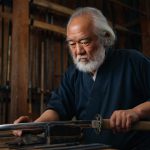Balancing Acts: Nurturing Wealth is Health in the Finance Adventure
July 09, 2024
Introduction: “Wealth is Health – Richard’s Finance Odyssey
Welcome to the vibrant streets of New York City, where the fast-paced world of finance thrives. In this captivating tale, we delve into the extraordinary journey of Richard, a visionary who dared to merge the realms of wealth and wellness. With an unconventional perspective, Richard embarked on a transformative odyssey that challenged traditional investment strategies and redefined the concept of prosperity.
Join us as we uncover the remarkable story of Richard’s Finance Odyssey, where the pursuit of financial success intertwines with a profound understanding of holistic well-being.
The Intersection of Health and Wealth
Richard firmly believed that financial success was intricately linked to health and happiness. He recognized that physical well-being principles were equally applicable to economic health. Discipline, mindfulness, and a holistic approach were the cornerstones of Richard’s philosophy.
According to a study by the American Psychological Association, financial stress significantly contributes to overall stress levels, with 72% of Americans reporting stress about money. Richard understood that individuals could achieve financial success and fulfilment by cultivating discipline in financial habits and being mindful of economic values and long-term aspirations.
Wellness Wisdom in Financial Decisions
Richard advocated for integrating wellness wisdom into financial decisions. He encouraged individuals to set clear objectives, create budgets, and regularly review and adjust their economic strategies. By aligning financial choices with overall well-being, individuals could make decisions that supported their long-term goals and promoted a sense of balance.
A report by the Global Wellness Institute reveals that the global wellness economy reached $4.5 trillion in 2018, demonstrating the growing recognition of the importance of well-being in various aspects of life, including finance. Richard’s approach resonated with this trend, emphasizing the need to consider the impact of financial decisions on overall well-being.
Diversification: The Balanced Diet of Finance
Drawing parallels between a balanced diet and a diversified investment portfolio, Richard emphasized the importance of spreading investments across various asset classes, industries, and geographic regions. Just as a well-rounded diet provides essential nutrients for optimal health, a diversified portfolio mitigates risks and maximizes potential returns.
Expert financial advisor John Smith supports this approach: “Diversification is a crucial element of any sound investment strategy. By allocating resources across different sectors and regions, investors can protect their wealth and benefit from the performance of various markets.”
Mindful Spending and Saving: The Financial Diet
Richard encouraged individuals to adopt a mindful approach to spending and saving, distinguishing between needs and wants. By setting financial goals and practising mindful saving, individuals can build economic resilience and work towards their long-term aspirations.
A National Bureau of Economic Research study found that individuals who engage in mindful spending and saving habits have higher financial well-being and overall life satisfaction. By aligning financial decisions with values and goals, individuals can cultivate a healthier relationship with money.
Self-Care: The Core of Financial Well-Being
Richard understood that self-care is vital to overall well-being and recognized its influence on financial decision-making. He emphasized the importance of prioritizing self-care practices to maintain physical and mental well-being, as they directly impact an individual’s ability to make sound financial choices.
Taking the time for rest, relaxation, and self-renewal allows individuals to recharge their energy and rejuvenate their minds. Richard encouraged individuals to engage in activities promoting relaxation and stress reduction, such as practising mindfulness, hobbies, leisure time in nature, or enjoying quality time with loved ones. Individuals can enhance their mental and emotional well-being by prioritising self-care and reducing the likelihood of impulsive or emotionally driven financial decisions.
Richard believed self-care practices were crucial in fostering clarity and focus regarding financial matters. When individuals are physically and mentally balanced, they are better equipped to assess their financial situation objectively, evaluate investment opportunities, and make informed decisions. Self-care allows individuals to step back from the noise and demands of daily life, creating the space for reflection and strategic thinking in their financial planning.
Furthermore, self-care practices contribute to stress reduction, a critical factor in financial well-being. Financial stress can impair decision-making abilities and lead to rash choices with negative long-term consequences. By engaging in self-care activities, individuals can manage stress levels, promote emotional resilience, and approach financial decisions with a calmer and more composed mindset. This enables them to make rational choices that align with their long-term goals rather than succumb to impulsive reactions driven by stress or anxiety.
Richard’s approach to financial well-being is holistic, recognizing that self-care is not just a luxury but a necessary investment in oneself. By prioritizing self-care, individuals can improve their physical and mental health, resulting in better financial decision-making and long-term financial success. Self-care helps people maintain balance, reduce stress, and cultivate a positive relationship with money.
As Richard’s teachings spread, people began understanding the vital link between self-care and financial well-being. They started integrating self-care practices into their financial journey, recognizing that caring for themselves was crucial to making sound financial decisions.
The Ripple Effect of Wellness Wisdom
The impact of Richard’s teachings extended far beyond individual lives, transforming communities and society as a whole. As more people embraced “wealth is health,” a collective awakening to the interconnectedness of finance and well-being emerged.
Financial institutions began incorporating wellness-oriented principles into their services, recognizing the importance of supporting individuals’ overall well-being. Employers implemented wellness programs encompassing physical and financial health, acknowledging the link between employee well-being and organizational success.
Embracing the Wealth is Health Legacy
Richard’s legacy is a powerful reminder of the intrinsic connection between wealth and health. By embracing the principles of wellness wisdom, individuals can achieve financial success while nurturing their overall well-being. The pursuit of wealth becomes intertwined with a commitment to personal and planetary well-being, leading to a more fulfilling and harmonious life.
As Richard’s teachings inspire future generations, the finance industry evolves to prioritize client well-being and long-term sustainability. Individuals are empowered to make mindful financial decisions, aligning their wealth with their values and aspirations.
Conclusion: The Paradigm Shift in Financial Well-being
As we reflect on Richard’s transformative journey and its impact on the intersection of finance and well-being, we find ourselves at the cusp of a paradigm shift. The “wealth is health” philosophy has reshaped individual perspectives and begun to influence collective consciousness, challenging long-held beliefs about success, prosperity, and fulfilment.
Out-of-the-box thinking reveals that the true revolution lies not in wealth accumulation but in the redefinition of wealth as a holistic concept encompassing physical, mental, and financial well-being. This shift in perspective aligns with what psychologist Abraham Maslow termed “self-actualization” – the realization of one’s full potential. In finance, self-actualization is the harmonious integration of financial success with overall life satisfaction.
The mass psychology underpinning this shift is profound. As more individuals embrace the “wealth is health” mindset, we observe what sociologist Mark Granovetter called the “threshold model of collective behaviour.” This model suggests that as a critical mass of people adopt a new idea or behaviour, it triggers a cascade effect, leading to widespread social change. This translates to a growing emphasis on sustainable, ethical, and wellness-oriented investment strategies in the financial world.
However, we must also be mindful of the potential pitfalls of herd mentality in this new paradigm. Behavioural economist Dan Ariely warns of the “bandwagon effect,” where individuals might blindly follow wellness trends without critical evaluation. To counter this, it’s crucial to foster what psychologist Carol Dweck calls a “growth mindset” – an attitude that embraces challenges persists in the face of setbacks, and views effort as the path to mastery.
The ripple effect of Richard’s teachings extends beyond individual lives, reshaping entire industries. Financial institutions are now compelled to consider the holistic well-being of their clients, not just their monetary assets. This shift echoes management guru Peter Drucker’s prediction: “The greatest danger in times of turbulence is not the turbulence; it is to act with yesterday’s logic.”
As we move forward, integrating self-care practices into financial decision-making will likely become the norm rather than the exception. This evolution aligns with what futurist Alvin Toffler called “anticipatory democracy” – the idea that we can and should proactively shape our future rather than merely reacting to changes.
The legacy of “wealth is health” challenges us to think beyond traditional success metrics. It invites us to consider what economist Amartya Sen termed the “capability approach”—the idea that the true measure of a society’s wealth lies in the opportunities it provides for individuals to achieve their full potential.
The future of finance, viewed through the lens of “wealth is health,” is one where prosperity is measured not just in dollars and cents but in the quality of life, the depth of relationships, and our positive impact on the world around us. As we carry this legacy forward, we can create a world where true wealth is synonymous with holistic well-being, embodying the timeless truth that our greatest asset is not what we own but who we become in pursuing our goals.











